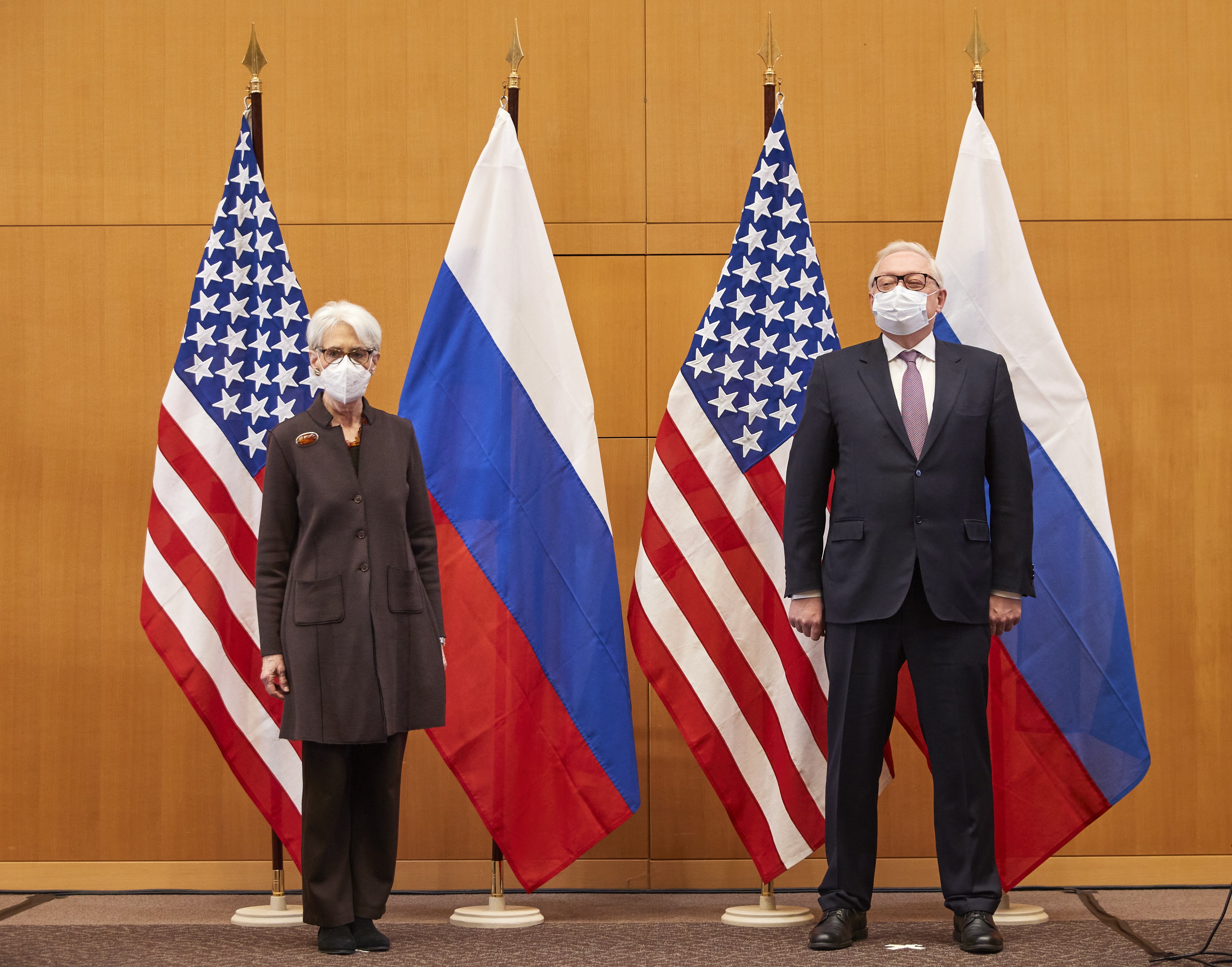US and Russia open tense talks over Ukraine crisis with low expectations
US seeks to avert risk of Russia invading Ukraine while Moscow wants a ban on further NATO expansion

With expectations low on both sides, the United States and Russia began tense negotiations in Geneva on Monday that Washington hopes can avert the danger of a new Russian invasion of Ukraine without conceding to the Kremlin’s expansive security demands.
Russian Deputy Foreign Minister Sergei Ryabkov said over the weekend it was entirely possible that the diplomacy could end after a single meeting, and US Secretary of State Antony Blinken played down expectations for the high-stakes talks.
“I don’t think we’re going to see any breakthroughs in the coming week,” Mr Blinken said in a CNN interview on Sunday.
The talks began at the US diplomatic mission in Geneva with US-Russia relations are at their most tense since the Cold War ended three decades ago. Discussions will then move on to meetings in Brussels and Vienna.
Deputy Secretary of State Wendy Sherman, the No. 2 official in the US State Department, said in a tweet from Geneva that “the US will listen to Russia’s concerns and share our own”. No discussions on European security would be held without the presence of other allies, she said.
Nearly 100,000 Russian troops are gathered within reach of the border with Ukraine in preparation for what Washington and Kyiv say could be an invasion, eight years after Russia seized the Crimea peninsula from Ukraine.
Russia denies invasion plans and said it is responding to what it calls aggressive and provocative behavior from the NATO military alliance and Ukraine, which has tilted toward the West and aspires to join NATO.
Last month, Russia presented a sweeping set of demands that include a ban on further NATO expansion and an end to the alliance’s activity in central and eastern European countries that joined it after 1997.
The United States and NATO have dismissed large parts of the Russian proposals as non-starters, raising questions about whether there is any middle ground.
“Naturally, we will not make any concessions under pressure,” said Mr Ryabkov, who will lead the Russian delegation in Geneva.
Speaking at a news conference in Brussels, NATO Secretary-General Jens Stoltenberg said that the talks between Russia and the West may not resolve all issues but could provide a pathway to avoid conflict.
“It is possible to make deals with Russia,” he told a news conference alongside Ukraine’s Deputy Prime Minister Olga Stefanishyna. “What we are hoping for is that we can agree on a way forward, that we can agree on a series of meetings, that we can agree on a process.”
Ms Stefanishyna said Russia’s demands for security guarantees are no basis for negotiations.
“(The) aggressor is not in a position to put conditions until the Russian tanks is out of Ukrainian border,” she told reporters in Brussels.
US President Joe Biden has repeatedly warned Russian President Vladimir Putin that the United States and European allies would impose unprecedented sanctions if Russia chose to invade Ukraine. Mr Putin responded that sanctions could lead to a “complete breakdown in ties.”
In a preliminary meeting with Mr Ryabkov on Sunday evening, Ms Sherman emphasized Washington’s commitments to sovereignty, territorial integrity “and the freedom of sovereign nations to choose their own alliances,” the State Department said.
Mr Ryabkov told reporters his meeting with Ms Sherman had been “complex but businesslike,” Russian news agency Interfax said.
The Russian minister has compared the situation to the 1962 Cuban missile crisis when the world stood on the brink of nuclear war.
The United States and allies have said they are prepared to discuss the possibility of each side restricting military exercises and missile deployments in the region.
Both sides will put proposals on the table and then see if there are grounds for moving forward, Mr Blinken said on Sunday.
If diplomacy fails, and Moscow acts against Ukraine, the United States has been discussing with allies and partners in Europe and Asia a range of trade restrictions against Moscow, a source familiar with the plan said.
One restriction could target critical Russian industrial sectors, including defense and civil aviation, and would hit Russia’s high-tech ambitions, such as in artificial intelligence or quantum computing, or even consumer electronics.
Reuters
Subscribe to Independent Premium to bookmark this article
Want to bookmark your favourite articles and stories to read or reference later? Start your Independent Premium subscription today.

Join our commenting forum
Join thought-provoking conversations, follow other Independent readers and see their replies